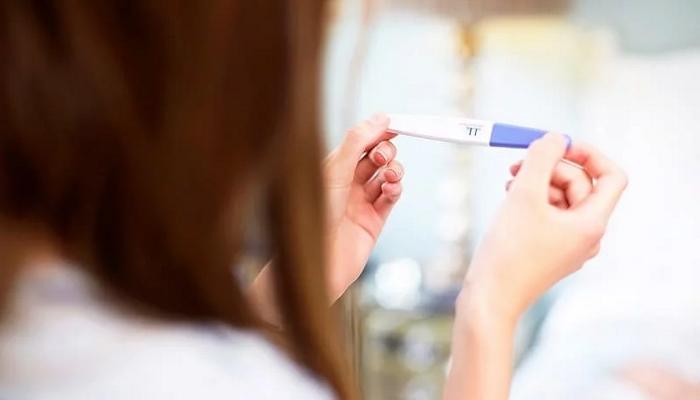Pregnancy Test Apps: Find out if you are pregnant
Anúncios
The search for answers about the possibility of pregnancy brought with it the digital age and its convenience: pregnancy test apps. These tools promise simplicity and speed, conquering more and more women around the world. In this article, we’ll explore the world of pregnancy test apps, unraveling how they work, accuracy and important considerations when using them.
In a scenario of technological advances, the emergence of pregnancy test apps is a reflection of the search for quick and affordable solutions. These apps operate from information entered by users, such as menstrual dates and symptoms. Using complex algorithms, these apps calculate the probability of pregnancy, offering a personalized assessment at the touch of a finger.
Anúncios
However, the accuracy of these applications has been the subject of debate and analysis. While they can provide insights into fertility and menstrual cycle patterns, it is vital to recognize that these apps are not a substitute for conventional medical tests for accurate pregnancy confirmation. The reliability of these tools is directly related to the data provided by the users and the complexity of the underlying algorithms. So, while they can be valuable as monitoring aids, it is essential to approach them with realism and caution.
In this article you will find:
Anúncios
Pregnancy Test Apps
Today, technology plays a key role in almost every aspect of our lives, including health and reproduction. With the advancement of smartphones and mobile apps, several innovative tools have emerged, such as pregnancy test apps.
These apps offer a convenient and discreet approach for women who want to check for the possibility of a pregnancy, providing information and guidance that can help them make important decisions with more confidence and knowledge.
Next, let’s look at how these apps work, how accurate they are, and the role they play in today’s reproductive health landscape.
Flo
This app offers menstrual cycle tracking, symptom analysis, and ovulation prediction, as well as providing pregnancy probability estimates.
Clue
Clue not only helps track the menstrual cycle, but also allows users to enter information about mood, symptoms and daily activities to offer insights into reproductive health.
Ovia
With a comprehensive approach, Ovia includes menstrual tracking, fertility and pregnancy predictions, as well as educational resources on reproductive health.
Kindara
Specializing in fertility monitoring, Kindara combines cycle tracking with basal body temperature and cervical mucus inputs to provide detailed estimates.
Glow
In addition to tracking your menstrual cycle and fertility, Glow offers a holistic approach, also covering health, lifestyle and emotional well-being issues.
Remembering that the availability and functionality of these apps may vary over time and region. It is always recommended to check the most up-to-date reviews and information before opting for a specific app.
How do Pregnancy Test apps work?

Pregnancy test apps operate as virtual assistants, allowing users to enter data related to their menstrual cycles and symptoms. Through complex algorithms, these apps analyze this information to calculate the probability of pregnancy. Some apps may also consider additional factors such as basal body temperature and cervical mucus to improve prediction accuracy.
Based on the data provided, these apps identify patterns in menstrual cycles and other fertility indicators. This allows users to have a personalized view of the likelihood of pregnancy. However, it is important to point out that these apps do not replace traditional medical tests for definitive confirmation of pregnancy. They act as monitoring and supportive tools, providing preliminary information that can help women make informed decisions about their reproductive health.
While these apps offer practicality and valuable information, it is essential to remember that seeking proper medical advice is critical. Pregnancy test apps can be helpful as a first step, but guidance from a healthcare professional is needed for a complete and accurate assessment. So while these technological tools can be important allies, they must be used in conjunction with a medical approach to ensuring reproductive health and overall well-being.
How to use Pregnancy Test apps?
- Keep Calm: Remember that the apps are auxiliary tools and not definitive medical tests.
- Share with Health Professionals: If you suspect a pregnancy, see a doctor for confirmation and proper advice.
- Use Accurate Data: The more accurate the data entered into the application, the more likely it is to get more reliable estimates.
- Combine with Other Indicators: Be cautious when making decisions based solely on the app’s predictions. Consider other fertility symptoms and indicators.
Are these apps reliable?
The accuracy of pregnancy test apps varies, depending on the information provided by users and the complexity of the underlying algorithms. These apps may provide an estimate of the likelihood of pregnancy based on the data entered, but should not be considered definitive medical tests. Confirmation of pregnancy must be obtained through clinical tests performed by health professionals.
It is important to recognize that the reliability of these applications is subject to limitations. Factors such as irregular menstrual cycles, hormonal changes and other individual elements can affect results. Furthermore, the very nature of probabilistic estimates means that applications can deliver false positives or false negatives in some situations.
When using pregnancy test apps, users should approach them with caution and understand their limitations. While they can be useful as an initial assessment tool, it is critical to seek adequate medical confirmation to make informed decisions about reproductive health. Guidance from a qualified healthcare professional is crucial to getting an accurate diagnosis and ensuring the best approach to managing the potential pregnancy.
Advantages
- Accessibility & Convenience: Pregnancy test apps are available in the palm of your hand, allowing women to monitor their reproductive health with ease.
- Personalized Tracking: Some apps offer detailed tracking features, allowing users to observe patterns in their menstrual cycles and symptoms.
- Empowerment and Information: By using these apps, women can feel more informed about their bodies and make informed decisions about their health.
Disadvantages
- Limitations on Accuracy: The accuracy of these apps is influenced by user-supplied data and algorithms, which can lead to incorrect predictions.
- Anxiety and Unrealistic Expectations: Applications that promise fast and accurate results can create anxiety and unrealistic expectations in users.
- Lack of Professional Advice: Apps are not a substitute for medical advice and do not provide personalized advice.
Final considerations
In summary, pregnancy test apps represent a contemporary tool for monitoring reproductive health, offering personalized analyzes based on entered information. Despite this, it is crucial not to confuse these apps with definitive medical tests, as their accuracy can vary based on individual data and algorithms.
When considering the benefits of these apps, it’s important to take a balanced approach, supplementing your information with medical advice. The ease and accessibility of these tools can be valuable allies for women, as long as they are used as a first step towards an accurate clinical assessment.
Ultimately, the pregnancy journey is unique to every woman, and the collaboration between technology and medical care is critical to informed decision-making and to ensuring the health and well-being of both mother and potential baby.





